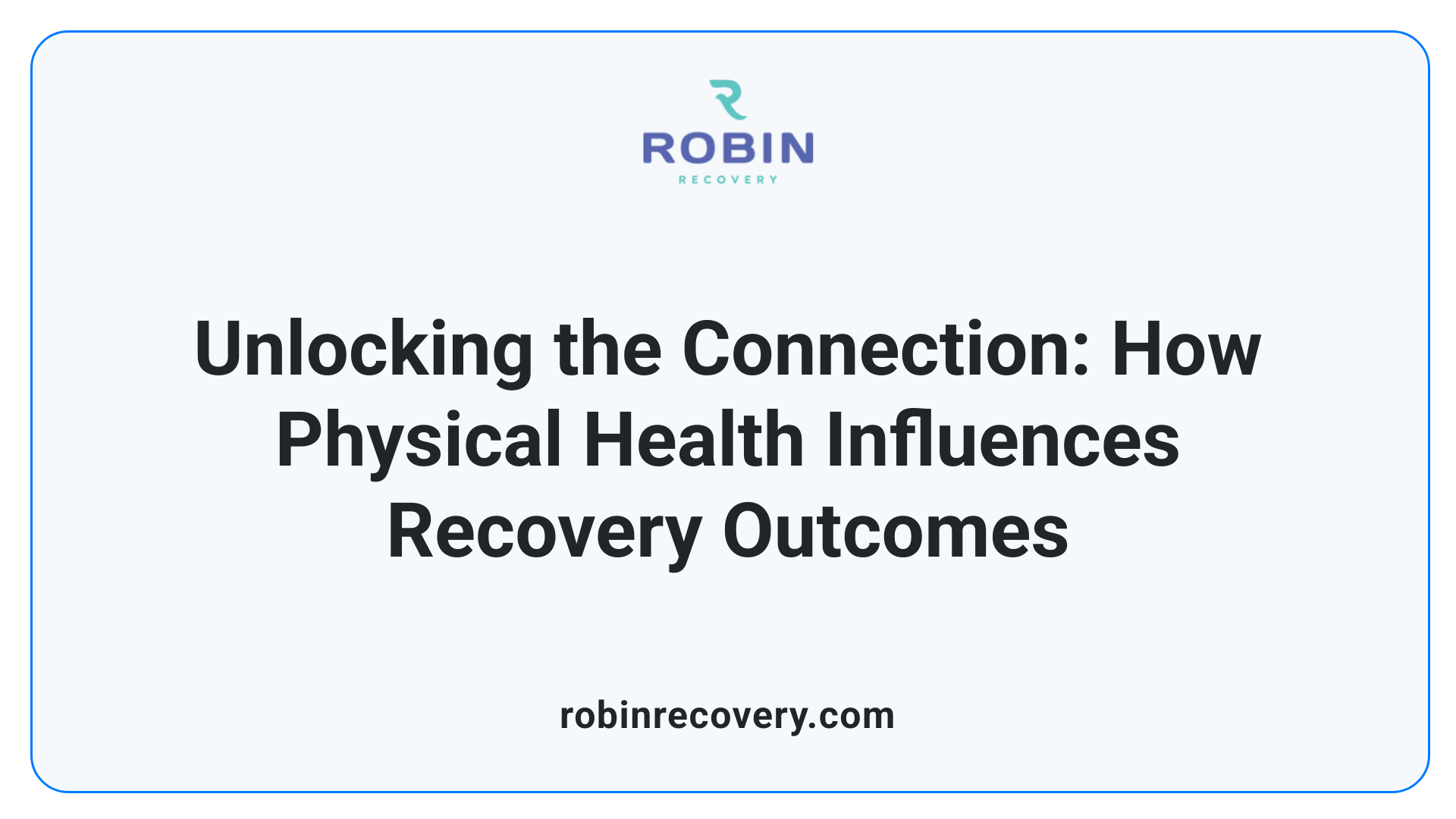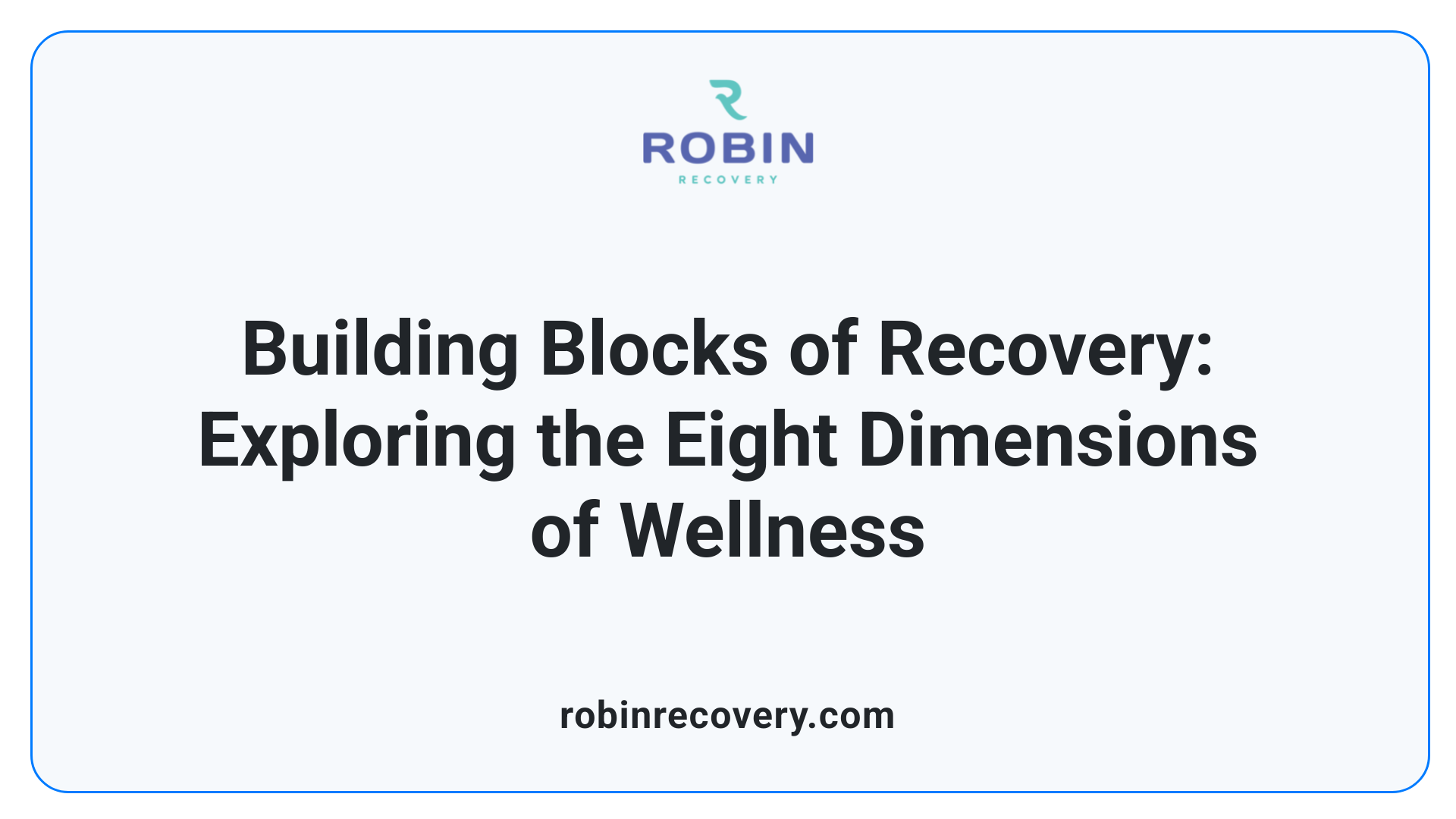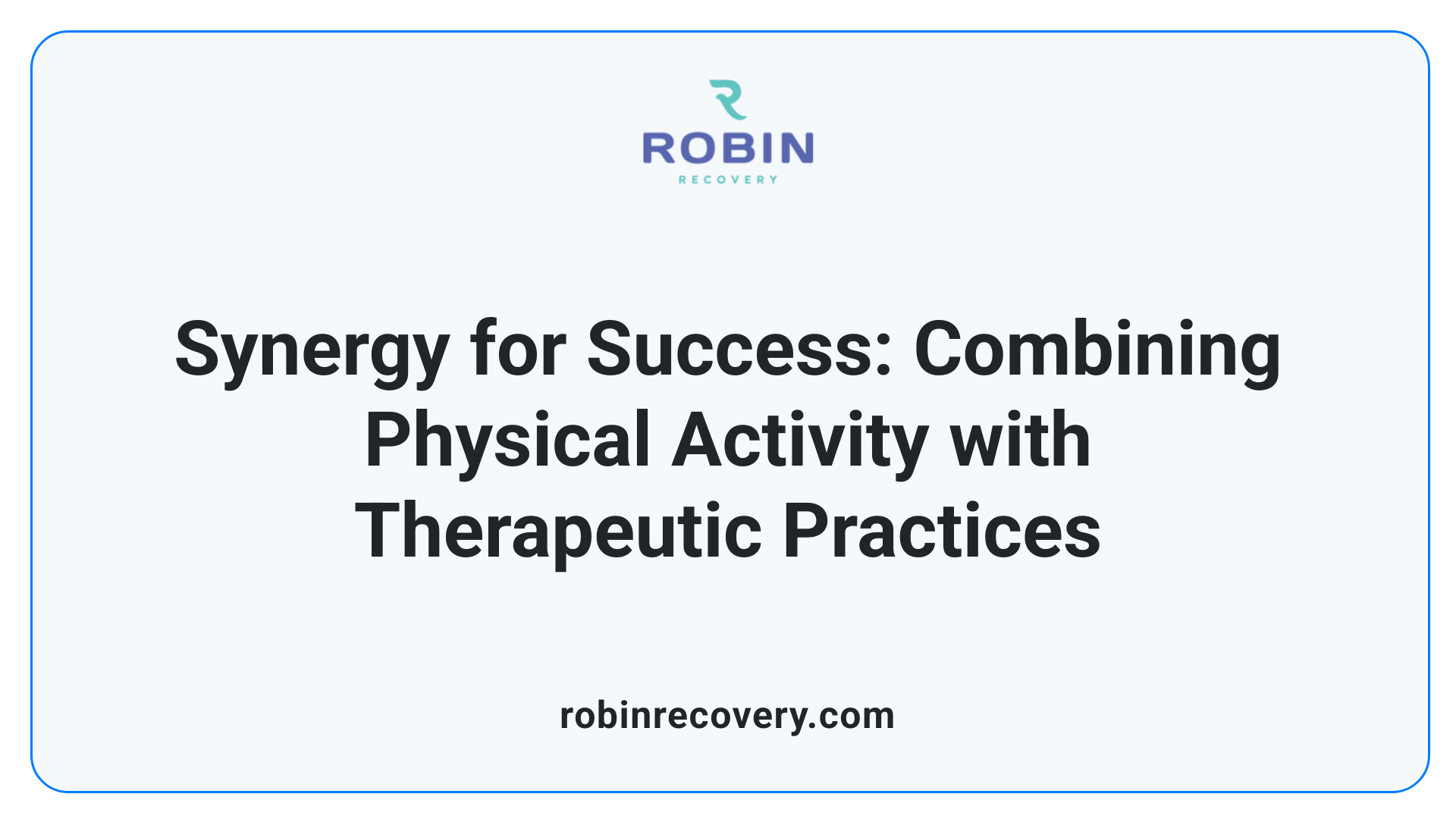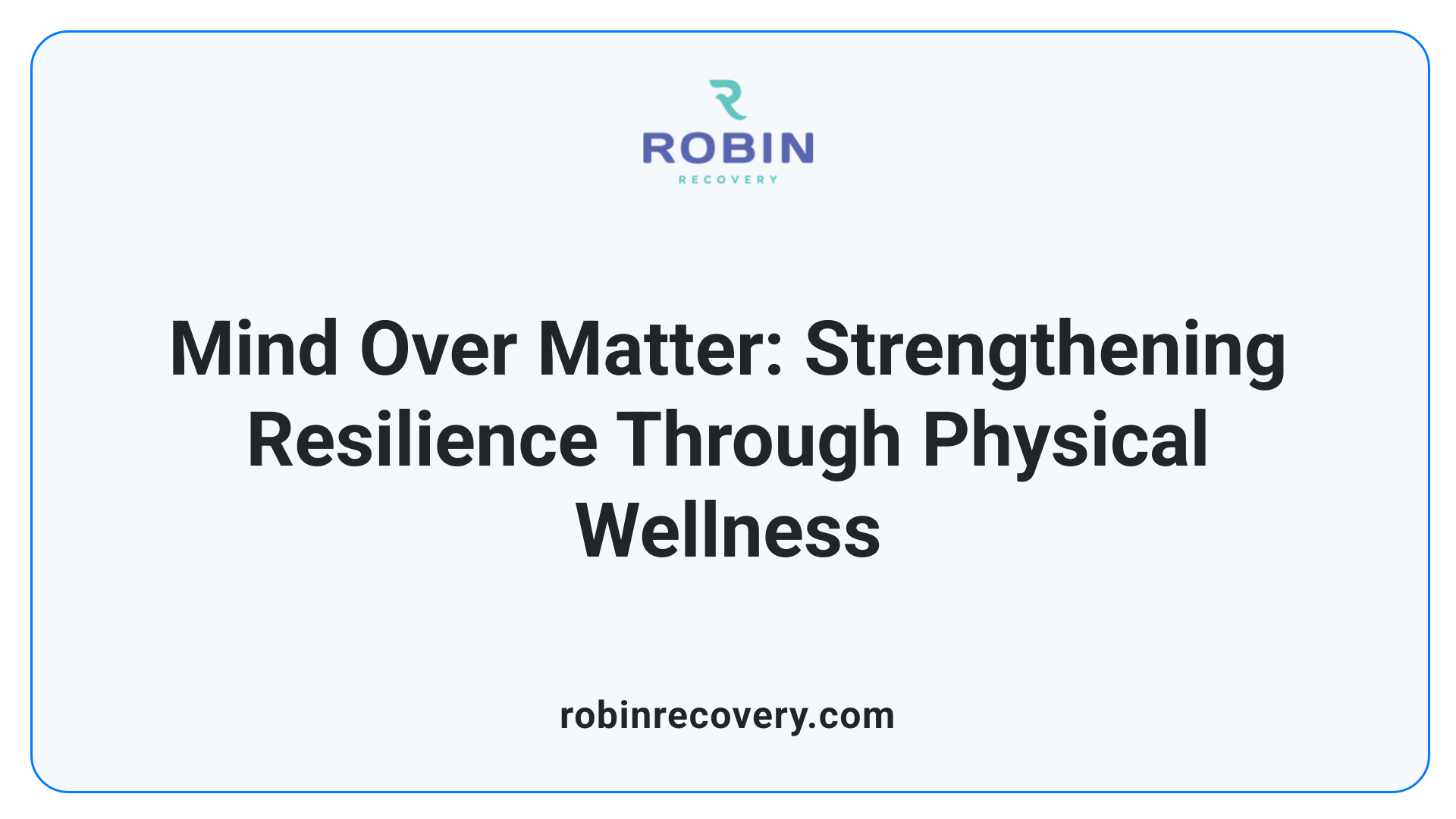The Importance of Addressing Physical Health in Recovery

Discovering the Role of Physical Health in Overcoming Addiction
The journey to recovery from addiction is multifaceted, often requiring a comprehensive approach that spans beyond mere abstinence. Physical health is increasingly recognized as a pivotal component that impacts the success and sustainability of recovery efforts. By incorporating strategies that promote physical wellness, individuals can better address the complex challenges that arise during the recovery process while enhancing their resilience and overall well-being.
Understanding the Integral Role of Physical Health in Recovery

Interconnection of Physical Health with Mental, Spiritual, and Emotional Aspects
Physical health is not an isolated component in addiction recovery; it intricately connects with emotional, mental, and spiritual well-being. The Substance Abuse and Mental Health Services Administration (SAMHSA) emphasizes eight dimensions of wellness, highlighting that physical health improves mental resilience and emotional stability. Regular exercise reduces cravings and boosts mood by releasing endorphins, fostering an environment conducive to recovery.
Restoration of Organ Function Through Physical Wellness
Recovery offers a chance to restore the body's functionality, particularly major organs such as the heart, lungs, and brain. Engaging in structured physical activities aids in repairing damage caused by substance use and promotes better organ performance. Proper nutrition and regular exercise not only enhance physical health but also play a critical role in healing the immune system and replenishing vital nutrients.
Preventive Role of Physical Health in Relapse
Maintaining physical health is essential for preventing relapse. A consistent routine involving physical activity contributes to stress management, emotional stability, and improved decision-making abilities. These factors are pivotal in reducing the risk of returning to substance use. As physical health improves, individuals often experience elevated self-esteem and a stronger sense of control over their lives, further solidifying their recovery journey.
Is Physical Health a Key Factor in Addiction Recovery?
Yes, physical health plays a crucial role in addiction recovery, as regular physical activity has been shown to improve mental health and reduce the likelihood of substance use recurrences. Engaging in physical activity can alleviate symptoms of depression and anxiety, sometimes offering benefits comparable to medication for mild to moderate conditions. Additionally, it helps manage cravings and supports brain function, which is essential during recovery. Group activities can foster social support, a vital component when striving for sustained recovery. Overall, integrating physical activity into recovery programs is recognized as a valuable strategy for enhancing both physical and mental well-being.
Physical Wellness: The Foundation of Holistic Recovery

SAMHSA's Eight Dimensions of Wellness
The Substance Abuse and Mental Health Services Administration (SAMHSA) identifies eight core dimensions of wellness: physical, emotional, occupational, intellectual, financial, social, environmental, and spiritual. These dimensions are deeply interconnected, especially during addiction recovery. Physical wellness, in particular, lays the groundwork for emotional stability and overall well-being, emphasizing that improving one dimension positively influences others.
Physical Health's Impact on Other Wellness Areas
Restoring physical health after substance use is vital not only for repairing bodily functions but also for enhancing emotional and mental wellness. When individuals prioritize physical activities like exercise, they often experience improved mood and reduced cravings, promoting stress management—key factors that help prevent relapse. Likewise, addressing nutritional deficiencies contributes to better cognitive function and emotional resilience, linking physical health directly with positive decision-making abilities.
Holistic Approach in Addiction Recovery
A holistic approach recognizes addiction as a condition that impacts the entire individual. By integrating physical wellness with emotional and mental health care, recovery programs can foster lasting change. Engaging in self-care practices such as mindfulness, nutrition management, and physical exercise not only aids personal healing but also builds a supportive community, reinforcing a sense of belonging and motivation critical for long-term sobriety.
Nutrition and Exercise: Key Pillars in Substance Abuse Recovery

What is the role of physical health management in recovery from addiction?
Physical health management plays a crucial role in recovery from addiction, emphasizing the importance of rest and overall well-being. Just as athletes must manage their health through nutrition, exercise, and adequate rest, individuals recovering from addiction benefit significantly from a balanced approach.
Proper nutrition is particularly vital. A healthy diet helps restore energy levels depleted due to substance abuse and provides essential nutrients that are often lacking. This nutritional support is crucial for healing and replenishing the body, which can help stabilize emotional states and enhance overall well-being.
Exercise's role in stress reduction and relapse prevention
Exercise is a powerful tool in addiction recovery. Engaging in regular physical activity not only boosts physical fitness but also aids in stress reduction. It releases endorphins, which improve mood and help combat feelings of depression and anxiety. These benefits significantly reduce cravings and minimize the risk of relapse, making exercise an integral element of a recovery program.
Furthermore, exercise offers individuals a constructive outlet for their energy and time, reinforcing healthy habits and coping mechanisms. Activities such as walking, strength training, or even mindfulness practices like yoga can be profoundly beneficial, addressing both physical and emotional health aspects of recovery.
CDC recommendations for physical activity
The Centers for Disease Control and Prevention (CDC) recommends at least 150 minutes of moderate-intensity exercise each week for overall health maintenance. This guideline can easily translate into a practical recovery routine, ensuring individuals engage in consistent physical activity that supports their recovery journey.
Incorporating these aspects of nutrition and exercise into a recovery plan lays the foundation for improved health, making it easier for those in recovery to navigate life's challenges with greater resilience.
Integrating Physical Health Practices into Recovery Treatment

Exercise and Therapy Synergy in Recovery
Integrating exercise with therapeutic practices, such as cognitive-behavioral therapy (CBT), has been shown to enhance recovery. Physical activity not only aids in managing stress but also improves mental health by releasing endorphins, which promote feelings of happiness. Regular movement can help individuals re-establish a healthy routine, reinforcing their commitment to sobriety and improving resilience against relapse triggers.
Physical Health Therapy Including Nutrition and Lifestyle Changes
Physical health therapy encompasses holistic strategies, including nutrition and lifestyle adjustments. Eating a balanced diet rich in nutrients helps restore the body’s health post-addiction, while consistent exercise contributes to maintaining energy levels and improving emotional well-being. It is essential for individuals in recovery to develop healthy habits, as physical wellness directly impacts mental stability and relapse prevention.
Research on Exercise Reducing Cravings and Improving Outcomes
Research supports the notion that exercise can effectively reduce cravings and improve overall recovery outcomes. Programs incorporating aerobic and strength training exhibit significant mental health benefits, such as decreased levels of anxiety and depression, which are common in those recovering from substance use disorders. Engaging in regular physical activity not only serves as a positive coping mechanism but also enhances lives by fostering new social connections and providing structure.
Mind-Body Connection: Enhancing Emotional Resilience Through Physical Wellness

Role of Physical Activity in Managing Stress and Anxiety
Physical activity plays a pivotal role in reducing stress and anxiety during addiction recovery. Regular exercise promotes the release of endorphins, the body's natural mood lifters, which can counter feelings of stress and improve emotional stability. The CDC advises at least 150 minutes of moderate-intensity exercise weekly, making it easier for individuals to maintain a healthy lifestyle and cope with challenges that may arise during recovery.
Building Self-Esteem and Personal Responsibility Through Exercise
Engaging in regular physical activities helps individuals rebuild their self-esteem and sense of personal responsibility post-addiction. Achieving fitness milestones, whether it's completing a workout or participating in group sports, fosters a sense of accomplishment. This positive reinforcement can encourage healthier lifestyle decisions, further supporting a path to recovery and resilience against relapse.
Mindfulness and Its Benefits in Recovery
Incorporating mindfulness practices, such as yoga and meditation, has been shown to enhance emotional resilience. These practices not only improve focus and emotional regulation but also help individuals develop coping mechanisms to manage cravings and stress. Mindfulness fosters greater self-awareness, enabling individuals to recognize triggers and make informed choices that support their recovery journey.
Research Insights on Physical Health and Addiction Recovery
Clinical Evidence Supporting Exercise in Treatment Protocols
Research has consistently shown that physical activity is a vital component of addiction recovery programs. Studies indicate that integrating aerobic exercise and strength training into treatment can significantly improve outcomes for individuals with substance use disorders (SUD). These programs have been correlated with reduced cravings, less anxiety, and notably, higher rates of long-term abstinence. Clinical findings suggest that regular physical activity can aid in restoring neurological functions affected by addiction, leading to better emotional balance and resilience.
Benefits of Moderate-Intensity Exercise in Recovery
Moderate-intensity exercise has proven to be particularly effective in recovery settings. Research highlights this type of exercise as more sustainable than high-intensity workouts, allowing individuals to adhere to exercise routines more easily. Engaging in activities such as brisk walking or swimming for at least 150 minutes a week promotes not only physical fitness but also significant mood improvements, reducing the likelihood of relapse. Furthermore, moderate exercise releases endorphins, which can alleviate symptoms of depression and anxiety, common issues in people recovering from addiction.
Physical Activities Supporting Mental Health Improvements
Physical wellness encompasses various activities that enhance mental health during recovery. Practices such as yoga, meditation, and team sports foster social connections and community support, crucial for recovery. These activities enable individuals to manage stress effectively, improve mood stability, and encourage the development of healthy coping mechanisms. Evidence suggests that these forms of physical engagement significantly bolster self-esteem and provide a purposeful lifestyle, greatly aiding the overall recovery journey.
Building a Supportive Environment for Physical Wellness in Recovery
Social Support's Role in Recovery
Social support is a cornerstone of addiction recovery. Building a network of friends, family, or support groups can provide encouragement and accountability, enhancing the physical and emotional wellness of individuals recovering from substance use disorders. Effective communication within these networks fosters understanding and should motivate individuals to engage in healthier lifestyle choices.
Effect of Support Networks and Group Activities
Participating in group activities can significantly improve physical wellness. They not only create a sense of belonging but also introduce fun and engaging ways to stay active. Activities such as team sports, group workouts, or community classes integrate physical fitness into recovery, helping to reduce stress and low mood while establishing supportive friendships.
Integrating Physical Wellness into Daily Routines
Integrating physical wellness into daily routines is essential. Simple practices like mindful eating, scheduling regular exercise, and ensuring time for relaxation can weave physical health into everyday life. Maintaining a balanced diet, getting enough sleep, and making time for physical activity not only builds resilience against cravings but also enhances overall recovery outcomes.
The Path Forward: Embracing Physical Health for Sustainable Recovery
Addressing physical health in addiction recovery isn't merely an add-on; it is a necessity that underlies sustained sobriety and well-being. By focusing on physical wellness, individuals can fortify their recovery journey, creating a synergistic effect that bolsters mental, emotional, and spiritual health. Incorporating physical activity and proper nutrition as part of a recovery plan results in myriad benefits, including enhanced mood, reduced cravings, and improved physical function. With research continuously highlighting the importance of this integrated approach, recovery programs are increasingly adopting physical health strategies as core components of treatment, thus laying a stable foundation for those seeking a life beyond addiction.
References
- Importance of Physical Wellness in Addiction Recovery - Alta Centers
- Physical Health Builds Success in Addiction Recovery
- How Physical Health Impacts Addiction Recovery - First Steps
- Enhancing Substance Use Disorder Recovery through Integrated ...
- Why it's Important to Take Care of our Physical Health in Recovery
- Working on Physical Health in Recovery From Addiction - Westwind
- The Role of Physical Activity in Recovery - All Points North
- Importance of Physical Wellness in Substance Abuse Recovery
